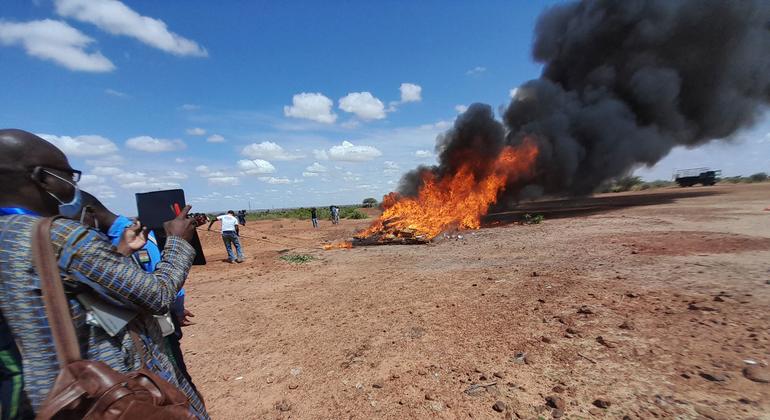Drug trafficking in the Sahel region continues to have detrimental consequences on security, economic development, and the rule of law, as well as posing a threat to public health, according to a new report from the UN Office on Drugs and Crime (UNODC). The report highlights how drug trafficking is well-established in the Sahel, with increased drug flows undermining peace and stability in the region. Armed groups are deriving revenue from drug trafficking to finance their operations, while criminal groups are tapping into population growth to expand illicit drug markets.
In countries such as Burkina Faso, Chad, Mali, Mauritania, and Niger, cannabis resin remains the most commonly seized internationally trafficked drug, followed by cocaine and pharmaceutical opioids. The report notes a significant increase in the seizure of cocaine in the Sahel in recent years, indicating large-scale cocaine trafficking through the region. The geographical location of the Sahel makes it a natural stopover point for cocaine produced in South America en route to Europe, where demand for the drug is also on the rise.
The report highlights a “vicious cycle” linking the drug economy and instability in the Sahel, with the weak rule of law facilitating the expansion of the drug economy. This, in turn, provides financial resources for armed groups to maintain or expand conflicts, further weakening the rule of law. Drug trafficking continues to provide financial resources to armed groups in the region, enabling them to sustain their involvement in conflicts through the purchase of weapons. Money-laundering is also being used by traffickers to disguise their illicit proceeds across various sectors, making financial transactions more difficult to track and giving traffickers a sense of legitimacy.
Efforts to combat drug trafficking in the Sahel region will require a multi-faceted approach that addresses the root causes of the issue. Strengthening law enforcement and border control measures, enhancing regional cooperation, and promoting alternative livelihoods for those involved in the drug trade are key components of such an approach. Addressing the socio-economic factors that contribute to drug trafficking, such as poverty and lack of opportunities, is also crucial in tackling the issue. By working together at the regional and international levels, stakeholders can make progress in combating drug trafficking and its negative impacts on the Sahel region.









